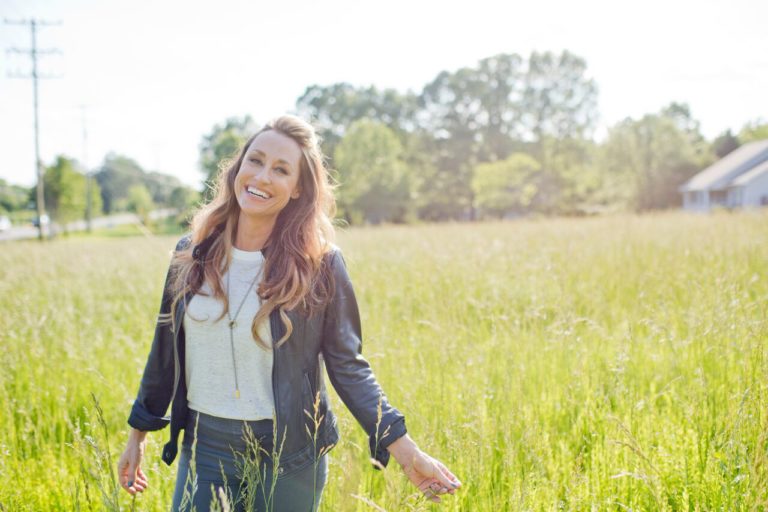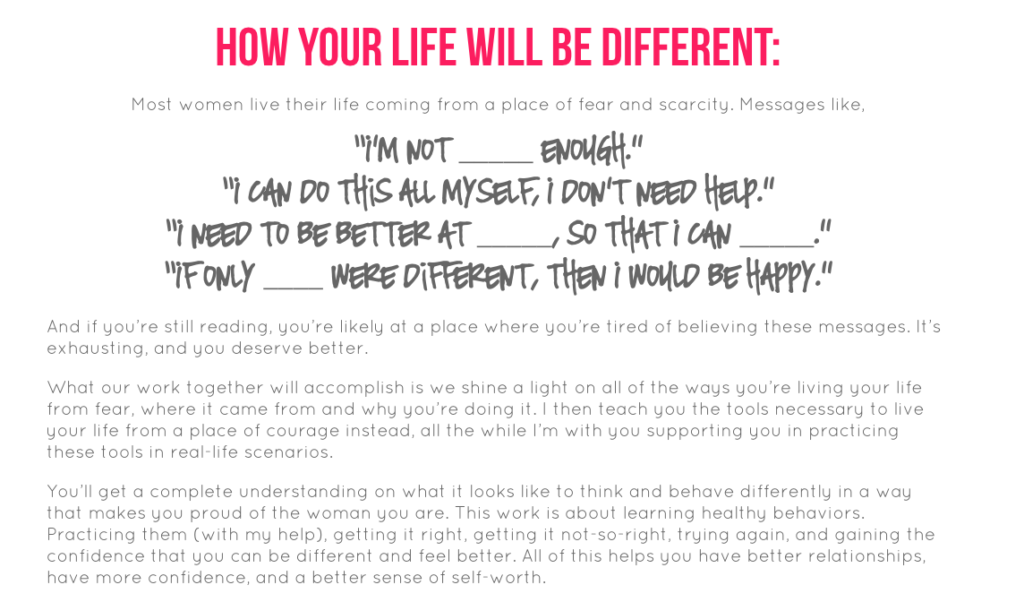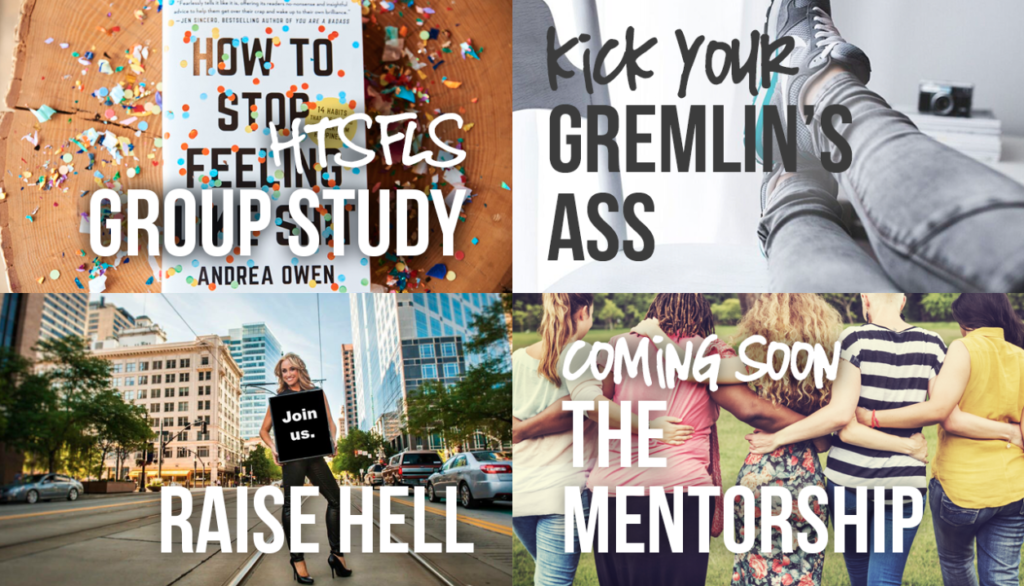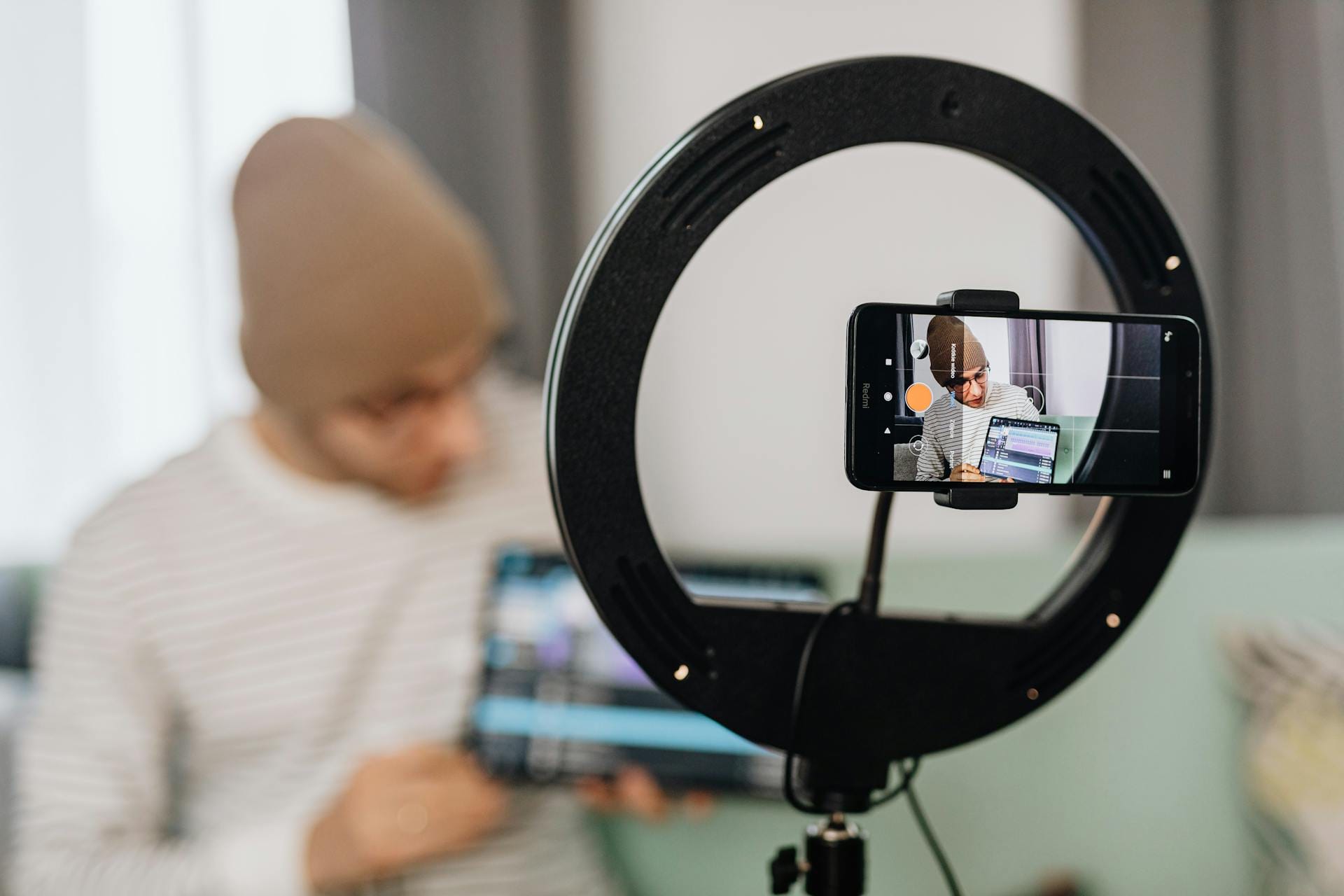
Kickass coaching: Inside a 6-figure coaching business
Early-stage entrepreneurs sometimes think of coaching as an entry-level step. It’s what you do “in the meantime” while you’re getting your “real”business(that’d be an information product) off the ground. But once you get that ebook or online course launched, and that sweet passive revenue starts pouring in, it’s sayonara, coaching — because who would actually want to talk to people?
Andrea Owen is proof that there’s more than one way to build a successful online business. Yes, even one with coaching at the center.
Your Kickass Life started in 2008 with the goal of helping smart, high-achieving women silence their “bitchy inner critics.” A decade later, Andrea is stillcoaching. But, contrary to the conventionally held “wisdom” about business trajectories, that doesn’t mean her business is standing still:
“Working individually with people is the best market research. Hearing their language, and developing the relationships with them … I hardly had to do any outside research [for my second book] at all, because I had spent seven years doing it, just by working with clients.”
She’s published two books (actual print books that go on shelves). She’s launched a podcast. She’s added group coaching programs and online courses and retreats. She’s built an entire team to help with scheduling and customer support. And all of it is built on the foundations of what started the business in the first place: one-on-one relationships, and the personal connections that only happen when you show up and talk to someone face-to-face.
(Okay, sometimes there’s a walkie-talkie app involved.)

We talked to Andrea about what goes into building a kickass coaching business on your own terms — and what it looks like when your coaching program grows with you.
Interview edited for length and clarity.
—
Where did being an entrepreneur start for you? Had you always wanted to start a business?
I was definitely what people call an “accidental entrepreneur.” I was not that kid who sold lemonade stands. I hated selling Girl Scout Cookies … I knew I wanted to be a coach, but I didn’t realize that you needed to learn how to run a business in order to have the success that I wanted. I just thought, “If I build it, they will come.” In other words, if I get the certification, if I start telling people what I do, then customers will just line up. And that didn’t happen.
I started blogging in 2007, not realizing that it was going to impact my business. I got a small following, maybe 100 people or less. And then for training that I was doing [to get certified as a coach], we had to have seven paid clients. So I just wrote on my blog, “Hey, I need clients for this.” I charged an ungodly low amount of money — $50 for three sessions a month — just so I could easily get people in and get the practice. [Editor’s note: For comparison, Andrea now charges $12K for her private coaching course.] I landed 11 clients right away, and it just grew from there.
Were there any obstacles you ran into when you were getting started?
It definitely wasn’t easy, and there were times when I had no clients, and that wasn’t fun at all. What I realized is that the audience that I was speaking to — and ultimately selling to — did not know what “coaching” was in this context. So it was a challenging sell. I was using a lot of coaching jargon, and the people I was talking to … didn’t understand what I was talking about. Their eyes glazed over. So I figured out that I needed to do it a different way … And what I learned was that I couldn’t just sell “coaching” — people didn’t know what they were paying for. People don’t buy “coaching.” They buy results. They buy what they want to get on the other end.

Want to build a business that enables you to live YOUR Rich Life? Get my FREE guide on finding your first profitable idea.
Thinking back to when you launched your first book, is there anything you would do differently now?
It drives me nuts when people won’t talk about [their failures]. It’s like, “I know you have them!”
When my book came out, I was getting a lot of new people to my site who had found my book at the bookstore or the airport, and wanted to work with me. But there was nothing on my site that was built for that. I should have had some kind of group coaching, or even one-on-one coaching, that directly related to what people were reading. I think I left a lot of money on the table [because of that]. I rectified that with the second book — huge difference.
Make sure you are prepared for the influx of new people that you are going to get [when you launch a new product]. They are brand new to you. They’re hungry for more of what they just consumed, but in a way that’s maybe different than the people you’ve worked with before.
How does the work that you’re doing with clients through coaching influence your books and other programs you create?
Working individually with people is the best market research. Hearing their language, and developing the relationships with them … The entire idea of my second book came from paying attention to the patterns that my one-on-one clients were experiencing, and the women that are in my group programs.
With the length of time that I work with people, I’m in an intimate relationship with them. I know all of their behaviors. So it was perfect — I hardly had to do any outside research at all, because I had spent seven years doing it, just by working with clients. And that’s why I thank them in the very beginning of the book, because they were the reason that I wrote that second book.
What about the other way around? Has introducing books changed the way you coach at all?
I’m not sure [having the books] changes how I coach. But sometimes I tell [my clients], “I wrote a whole chapter on this. Go read it, then come back and tell me where you’re still struggling.” It acts as a workbook in a way, which is helpful. But people are still people — they’re still going to have the same struggles that they’re always going to have.
Having passive income is incredible — it’s just really nice to have that stability. But the other thing is, I charge a lot of money [$12K for 16 sessions] to work with me privately now. I know there a lot of people out there who just can’t afford it. So for them to be able to go through something that I have created, which is very, very similar to what I do privately with people — it’s great to be able to offer that as well.

Something that early entrepreneurs seem to worry about is whether being a coach will limit their flexibility, which is the whole reason they want to start their own business to begin with. Have you found with your business that coaching limits your flexibility and ability to do other things?
It’s partially true [that there’s less flexibility with coaching than there is with other products]. But at the end of the day, I’m still the boss.I still dictate when I take clients. I have really great boundaries, which is something I have had to learn the hard way over the years. I only take clients on Tuesdays and Wednesdays. I only coach between the hours of 9 a.m. and 1 p.m. I have set hours where I get back to people when they email. And I set those expectations from the beginning.
There’s flexibility there. If somebody has something going on, and they need to change to Thursday morning, if I’m available on Thursday morning, I’ll do it. But if I really can’t, then I say “No, you lose that session. I’ll talk to you next week.”
You mentioned that having boundaries is important. How is that reflected in how your coaching business is structured?
I have a coaching package that has a specific set of sessions — 16 sessions — and I ask clients to complete their sessions in five months. So that means they have four weeks where they can cancel and reschedule, or not have a session that week. Beyond that, there’s an additional charge, because we’re still communicating, they’re still using my team to do scheduling, and things like that.
I had a client once who traveled a lot for work, so she kept rescheduling sessions. It wound up taking nine months to do that package. That prevents me from getting another client. So I learned quickly there, “No, can’t do that.”
A lot of the decisions [about how I structure my coaching] came from paying attention to my own aggravation and hostility, and realizing, “That can’t happen again. Gotta put that in the contract.”
Has there ever been a time where you’ve thought, “This isn’t working anymore, I think it’s time to be done with coaching”?
If you hate coaching — personally find yourself hating it — you have to ask yourself why. I’ve had that happen to me, and it wasn’t because I hated the craft of coaching. It was because I was getting the wrong clients. The reason that I still love coaching is because I think the people I work with are really rad. I don’t have people that are emotionally exhausting to me, or are flakes. But it has taken me a minute to get here.
[My team and I] have done a lot of work clarifying the messaging around who I am, and pre-qualifying prospects. We’ve worked on fine-tuning the copy on my website. We have a detailed questionnaire that a prospect completes. If it seems like someone isn’t the right fit, we provide them with other options.
My clients are just such incredible people. And that comes back to how much I charge. If someone is going to plunk down that amount of money and that amount of time and energy to work with me, they are ready. And that’s why I love it.
Any other advice for entrepreneurs in the early stages of launching a coaching business?
Whatgets overlooked sometimes is just honing your skills and becoming masterful at what you do.There’s so much advice out there like “Double your rates.” No — charge what the market will bear for someone with your experience. Yes, you need to become a profitable business owner, but it’s just like in acting, or any other craft. You don’t jump out of cosmetology school and charge $200 for a men’s haircut.
The customer is a lot more savvy [about coaching] than they were even three years ago. If you’re putting work out there that’s shit, they’re going to know. They’re going to ask for refunds. They’re notgoing to tell their friends about you.
I have seen people burn themselves to the ground over things that could have been avoided. And it was because they were so focused on the numbers — on breaking a certain income level, or having a certain number of followers — that they weren’t paying attention to what they should have been focused on: the people and the relationships.
What about you? What’s next?
I’m working on a third book. I’m trying to shift more into speaking. That’s a little bit of a different business model, and it’s something that I’d put on the backburner, because I’ve been raising babies and writing books.
I love my clients. I love helping people. So why would I want to ever stop?



